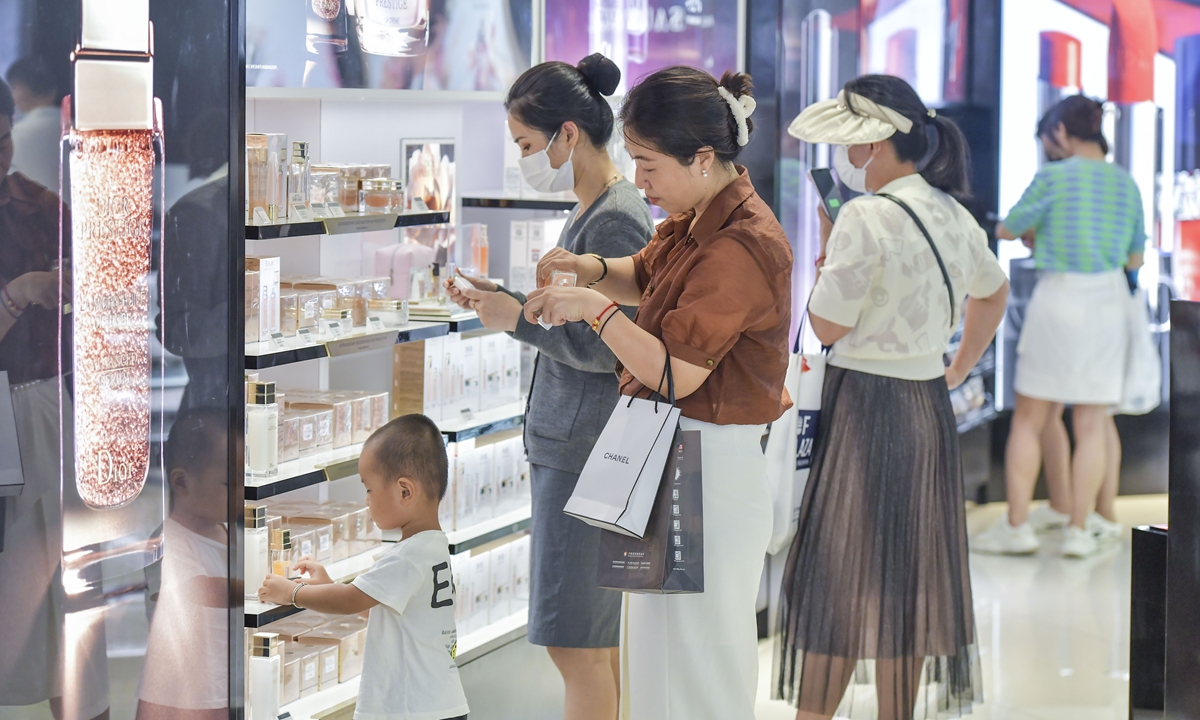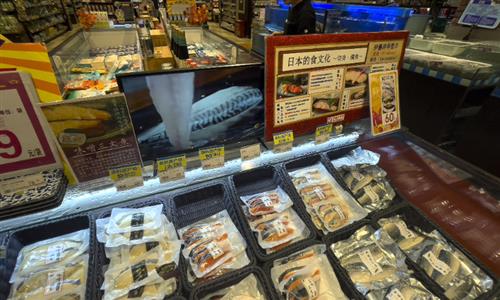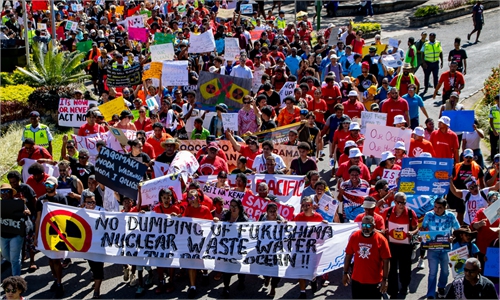Chinese consumers create blacklists of over 30 Japanese cosmetic brands amid outrage, safety concerns

Photo: cnsphoto
Chinese consumers are increasingly resistant to Japanese products, including cosmetics, due to Japan's selfish and dangerous plan to dump nuclear-contaminated wastewater into the ocean, with many creating blacklists of over 30 Japanese cosmetic brands and lists of alternatives, while some have even started to return purchased goods.
Such a trend puts at risk one of Japan's main exports to China, which reached more than $4 billion in January-November 2022. Japan had the second-largest market share in the Chinese cosmetic market in 2022, but sales have already been declining and consumers' increasing resistance will likely accelerate the decline trend, which would benefit cosmetic brands from other countries and regions such as Europe.
On Chinese social media platforms, many posted blacklists of Japanese cosmetic brands and reminded others to avoid "land mine." One of such blacklists on Sina Weibo that are widely reposted contains 31 brands, including SK-II, Shiseido and Muji. Topics of Japanese cosmetics have attracted hundreds of millions of views. On Xiaohongshu, another social media platform, netizens compiled lists of Japanese cosmetics and a list of alternatives, drawing widespread attention.
A 35 year-old Beijing resident surnamed Huang told the Global Times on Saturday that she was a loyal user of Japanese cosmetics, including SK-II, but she has stopped purchasing it after seeing the news of Japan's plan to dump nuclear-contaminated wastewater into the sea.
"It definitely causes [safety] concerns for us," Huang said, adding that several of her friends who decided to travel to Japan also suspended their plans and others have now switched from Japanese cosmetics to European brands such as L'ORÉAL.
Many consumers also said on social media platforms that they have already returned Japanese cosmetics they purchased.
Zhou Chen, a 32-year-old resident in Nanjing, East China's Jiangsu Province, told the Global Times that he has decided to not to buy Japanese-related products, including food and cosmetics for a while, and is exploring alternative products in China and those form Europe.
Such a trend is rising despite explanations from vendors of Japanese cosmetics.
An employee selling Japanese cosmetics at SKP, a luxurious shopping mall in Beijing, told the Global Times on Saturday that some clients came into the store with product safety concerns. While all their cosmetics sold in China are made in Japan, they meet corresponding safety standards of the Chinese government on imported goods, the employee said.
A customer service representative from a flagship store of Japanese beauty brand Shiseido on Tmall told the Global Times on Saturday that the company remains committed to providing consumers with safe and high-quality products, and every link of the production process is strictly supervised.
After reaching out to several Japanese cosmetic vendors, including Shiseido, Shu Uemura and SK-II on Saturday, the Global Times noticed that they all provided similar responses in an attempt to assuage consumers' safety concerns. In a statement sent to the Global Times, SK-II said its products meet Chinese import standards, and provided a copy of an inspection report issued by Shanghai customs on July 26.
Some consumers have already asked customs authorities whether more inspection will be done on Japanese cosmetics. In responding to such questions, the Shanghai Customs District said in June that authorities will step up nuclear radiation detection on products from Japan and take measures to prevent the import of products whose nuclear radiation exceeds the standards.
Chinese customs on Thursday imposed a sweeping ban on all imports of Japanese aquatic products in a bid to protect food safety, dealing a serious blow to Japan's seafood exports, which counts China as its top market.
Between 2019 and 2022, Japan had the biggest market share in China. In January-November 2022, China's imports of Japanese cosmetics reached $4.16 billion, ranking No. 2 in terms of market share, according to Chinese official data. However, China's imports of Japanese cosmetics have already been declining since May. In June, China's imports of Japanese cosmetics dropped 8.4 percent year-on-year, and in July, they plunged by 30 percent year-on-year, according to official data.



